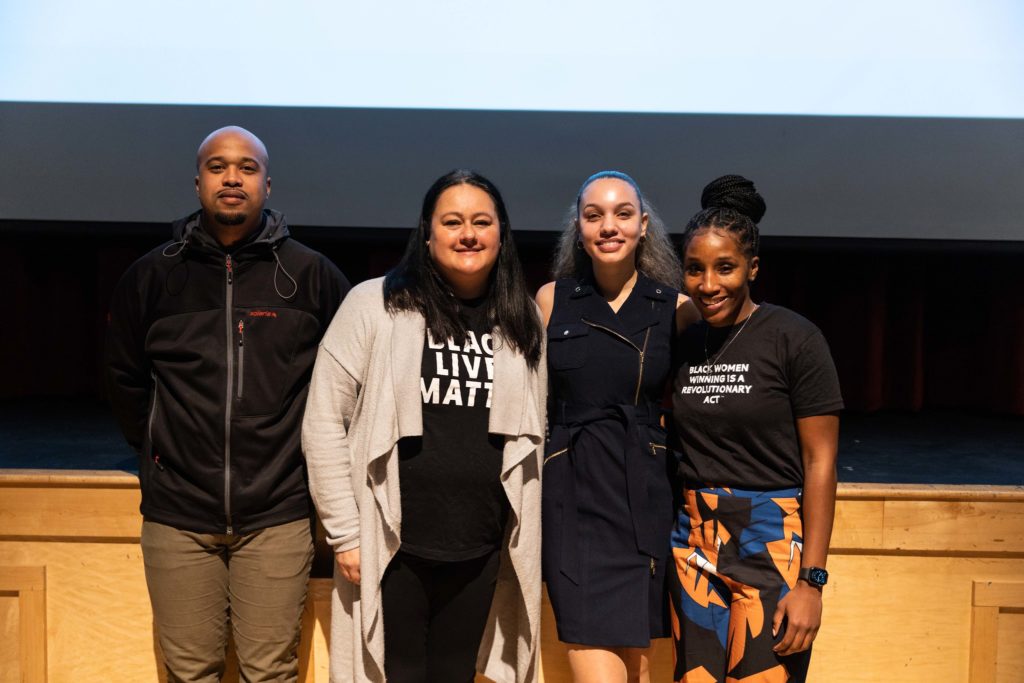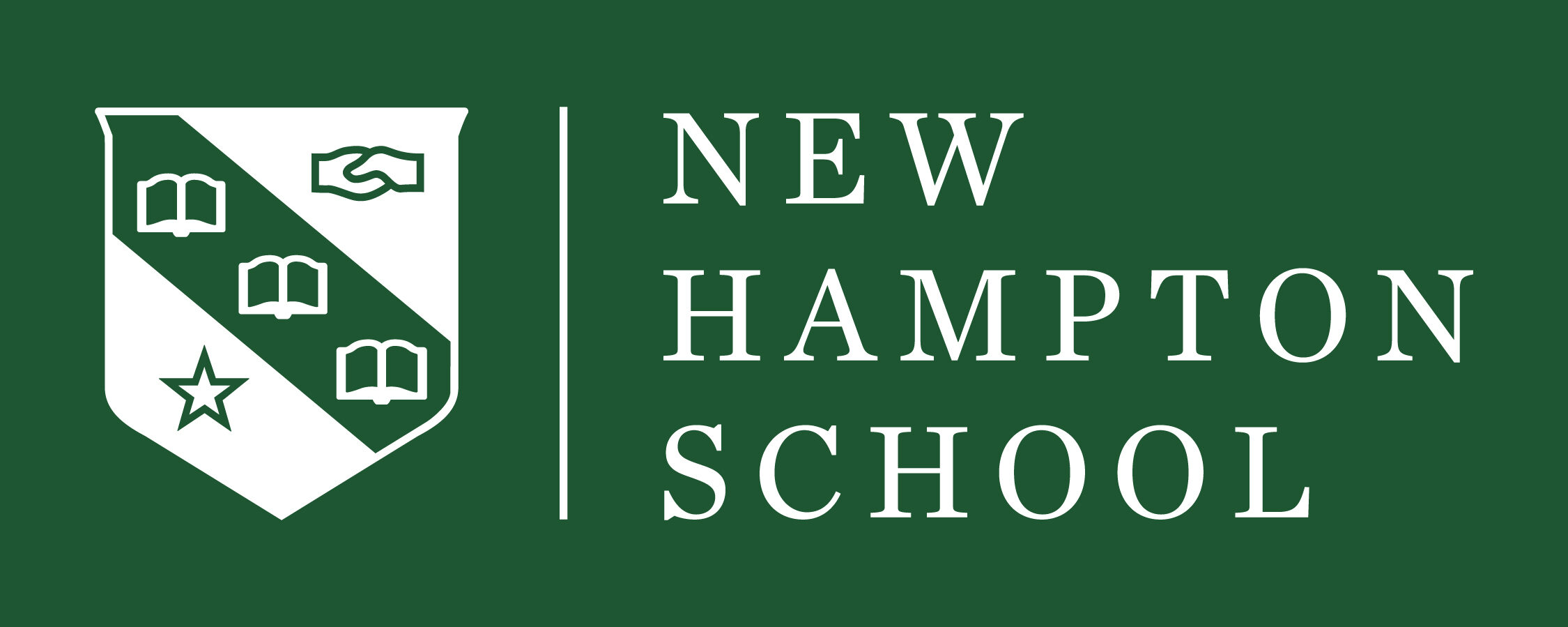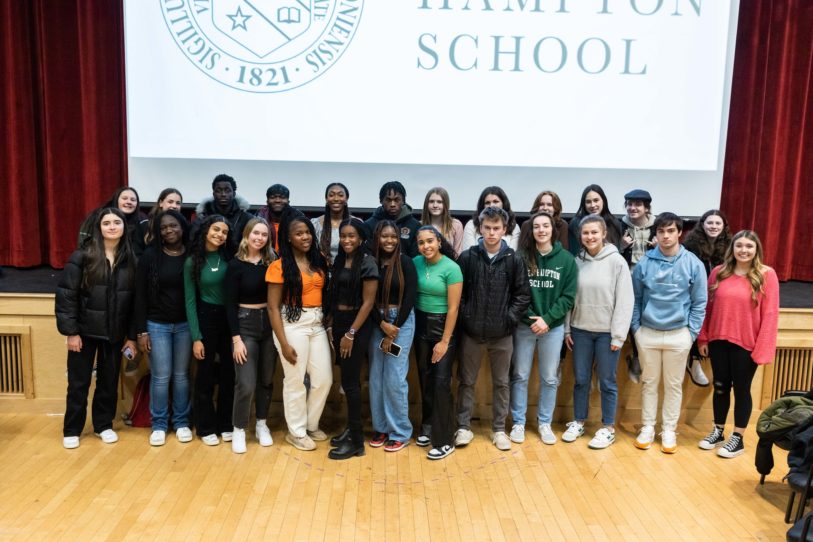While many schools and places of work experience a day off in honor of Martin Luther King, Jr. Day, our community at New Hampton School pauses the academic schedule for a day “on.” In recent years, the School has celebrated this during a special school meeting. However, for its second year, the School held a full day of programming, allowing ample time for listening, learning, and engaging through community time, workshops, and reflections. Here’s an inside look at this year’s program. As DEI Coordinator Magdalena Gilman shared at the beginning of the day, a traditional way for schools, in general, to participate in MLK Day includes public service and giving back to their community. “Our theme this year [at New Hampton School] is Gratitude in Action. Some schools, on MLK Day, give back and do community service. But what you are doing today is also service. One of the ways that you can give back is to honor the work done by others and the learning that goes into today by fully participating. By doing this, you are giving back to our community by making it a better and more inclusive space.” With this in mind, we moved into learning about Martin Luther King, Jr. and the reasons we focus today on social justice as a community, and why you don’t have to be a disruptor to contribute to ongoing change.
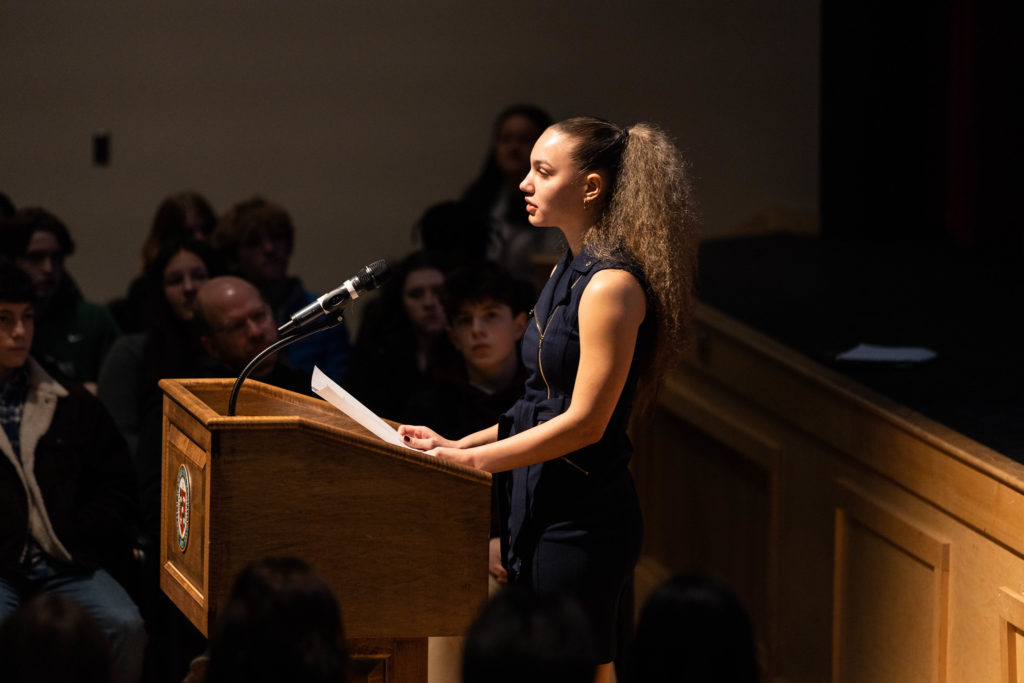
Conversations in Discrimination and Privilege
Following Ms. Gilman’s presentation, the MLK Day experience continued with featured speaker Autumn James ’21. During Autumn’s time at New Hampton School, she piloted and co-taught a class called Acknowledging Discrimination. Following the murder of George Floyd in the spring of 2020, and feeling the impact it had on her and so many others, Autumn questioned, “What type of daughter would I be if I could watch men that look like my father get killed every day and not do anything about it?” She was moved to do something about it.
The curriculum she developed in the summer of 2020, and co-taught as a senior, is aimed to directly address the prevalence of discrimination in our world. It involves discussions surrounding important leaders and activists, while also studying legislation that coincides with civil rights, women’s rights, and disabled person’s rights made accessible through a variety of media. Autumn shares, “You don’t have to be the person that creates a class or be a prominent leader like Martin. You can be a person that supports them. […] There’s always something you guys can do to be a part of the change. Because, as Dr. Martin Luther King once said, ‘Everybody can be great because everybody can serve.'”
After our morning session as a full community, students and faculty stepped up to discuss a range of topics in 24 different workshop sessions. Student leaders from the CORE group (the Council on Representation and Equity and members of the current Acknowledging Discrimination class) engaged their peers on topics including privilege, biases, racism in education, the culture and history of Black hair, and others, while faculty-led sessions explored eugenics, protest music, apartheid, racism’s effects on mental health, and voter suppression—to name a few. Students each attended two sessions before returning to McEvoy Theater for a final reflection workshop led by the Black Affinity Group. From personal reflections to presentations on Black excellence, we leaned in to listen and consider the possibilities for action.
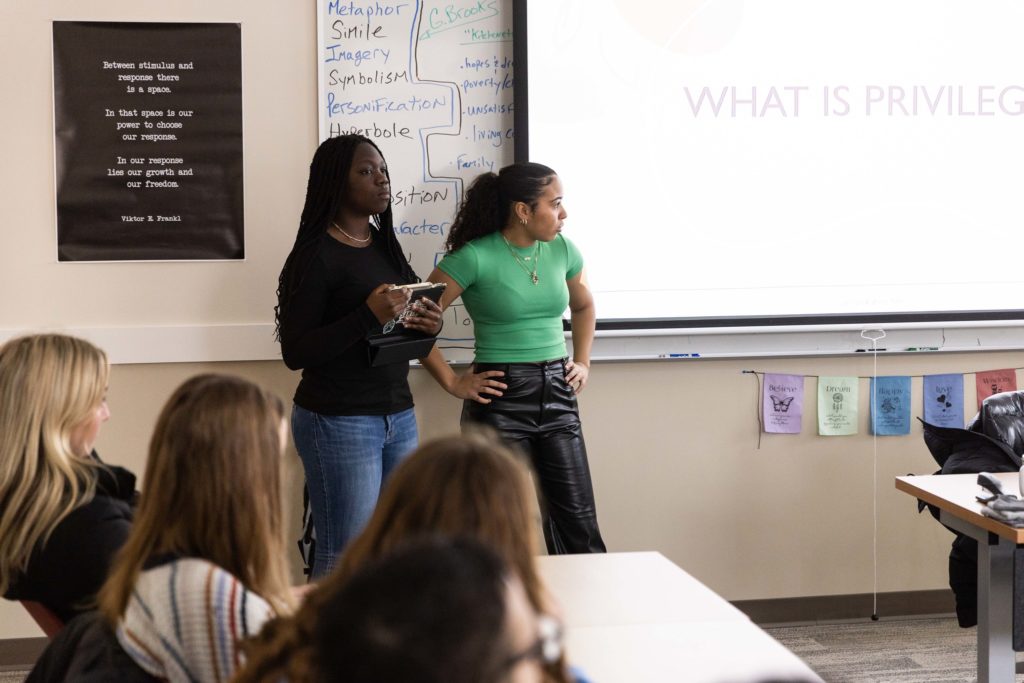
A History So Close
The end of segregation in 1964 and the heart of the civil rights movement is within the living memory of many of our alumni and community members. The beginning of New Hampshire’s recognition of Martin Luther King, Jr. Day in 1999—and the protests supporting this recognition—are within the living memory of even more faculty and staff. When we consider “where do we go from here?” we know we must be a part of the solutions as active global citizens. The conversations begun today in our global community highlights our ongoing need to continue conversations and actions on equity, inclusion, and belonging—not just on this day, but throughout our work and time together each year.
Thank you to DEI Coordinator Magdalena Gilman for coordinating this event with Autumn ’21, faculty, and student leaders; to all of our workshop leaders; and to our students for their participation and engagement throughout the day.
